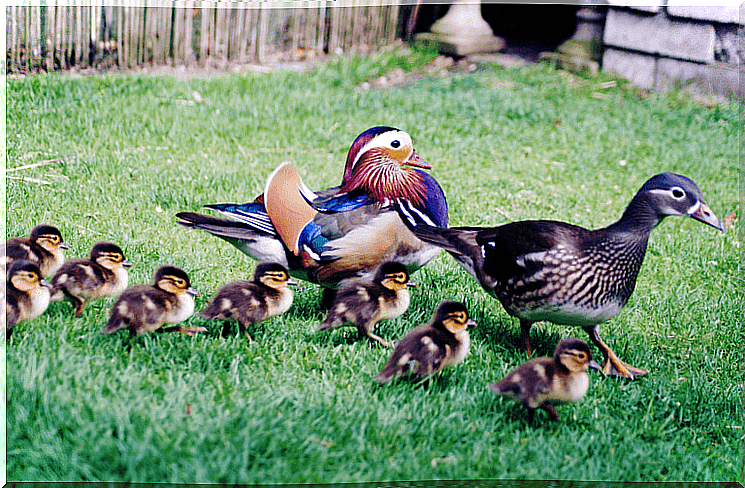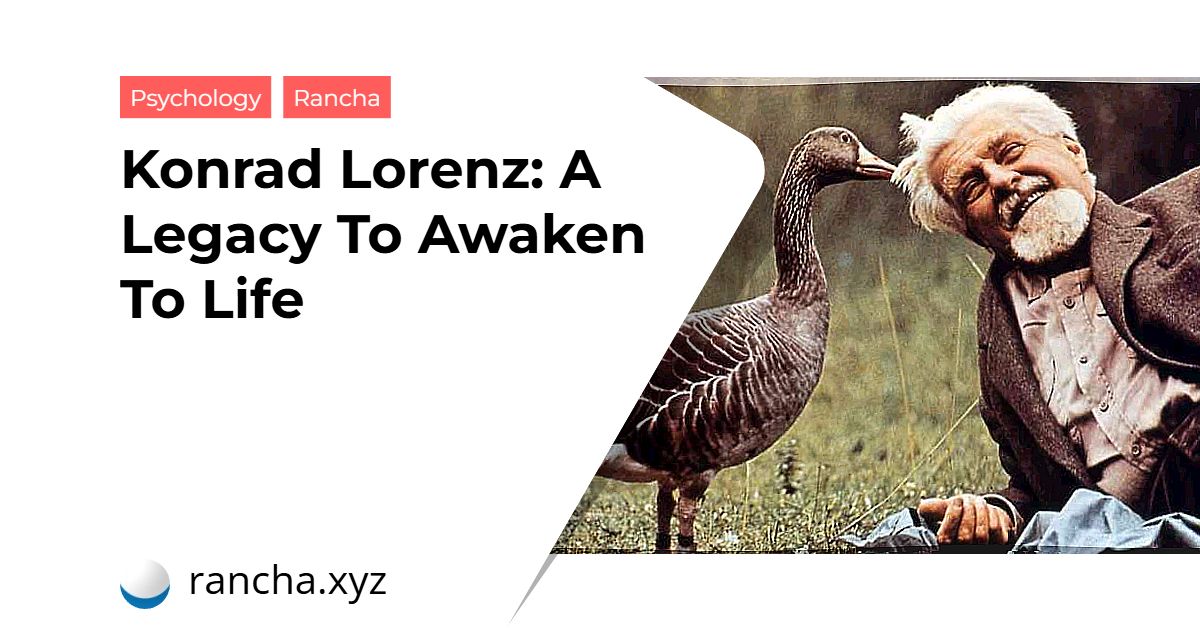Konrad Lorenz was, without a doubt, one of the most important scientists and researchers of the 20th century. He studied animal behavior like no other scientist. He is known as the “father of ethology”, which is precisely the discipline that studies animal behavior. His research greatly enriched what we knew about the laws of adaptation and survival.
This remarkable scientist was born in Vienna in 1903. From a very young age he showed a special love for animals. He had numerous pets and devoted much of his time to lovingly care for them. Interestingly, he was very attracted to wild geese, and from this fascination his first discoveries were born. So he always wanted to study zoology, but his father expected him to be a doctor and Konrad didn’t want to antagonize him.
That’s how Konrad Lorenz ended up studying medicine at Columbia University in New York. However, once he graduated, he continued with his research in zoology. This led him to complete his doctoral studies in that discipline at the University of Vienna.
Konrad Lorenz and Ethology
Konrad Lorenz was a great observer. He spent a lot of his time watching wild geese and other birds. In 1936 he met Niko Tinbergen, a biologist and ornithologist. Both shared the same fascination for animals and began to work together. The two laid the foundations for what would later become ethology, a science that studies animal behavior.

Ethology is a purely biological science, but it has a very close relationship with psychology because it also studies the bases of behavior. What is found in animals contrasts with human behavior and vice versa.
One of the most relevant aspects of Konrad Lorenz’s studies was that he designed, with the help of his teacher Oskar Heinroth, the concept of “fixed patterns of behavior”. As the name implies, it is a series of invariable behavior patterns, which they found in most animal species.
He found that some responses are instinctive, marked by genetic programming. Faced with certain stimuli, these behaviors were triggered, many of which included actual rituals. This is the case with the mating rituals of birds.
“Imprinting”: an interesting concept
Another of the most important concepts developed by Konrad Lorenz is imprinting. It is a kind of mark or imprint fixed on some animals from the moment of birth. Lorenz discovered this by observing newborn geese and ducklings.
He noticed the chicks emerging from the egg and following the first moving object they saw. It didn’t matter if that object was your mother or not. They simply acted automatically, chasing whatever moved in front of them. This behavior is called imprinting.
Konrad Lorenz also noted that this impression was not limited to the first few minutes of life, but was maintained over time. This phenomenon led these animals to try to mate with humans when they reached maturity. They even rejected members of their own species, giving priority to humans. This does not occur in all animal species, but in some of them.

a great legacy
Konrad Lorenz’s studies had great impacts on psychology. One of the most important was showing that instinct plays a very important role in all animals, including humans. This contradicted some behavioral theses, in which it was postulated that all human behaviors were learned.
Likewise, the concept of “imprinting” allowed us to define new views on the impact that circumstances have on behavior. It clearly showed that under certain conditions, even instinct is capable of leading us along unexpected paths.
Konrad Lorenz’s research has provided valuable elements for understanding the laws of adaptation and survival in the animal kingdom, which can be extrapolated to humans. He won the Nobel Prize for Medicine in 1973 and became responsible for creating a new discipline: ethology. Your brand is alive in current knowledge and your name already has an undisputed place among the greats in history.
 rancha.xyz Be free to choose their own route to self-knowledge, health and balance of body and soul.
rancha.xyz Be free to choose their own route to self-knowledge, health and balance of body and soul.




